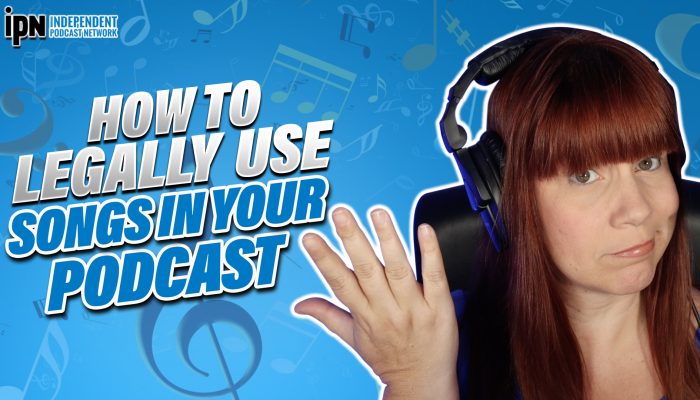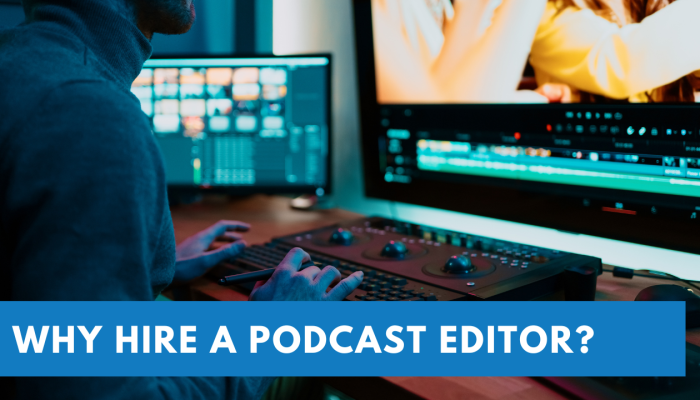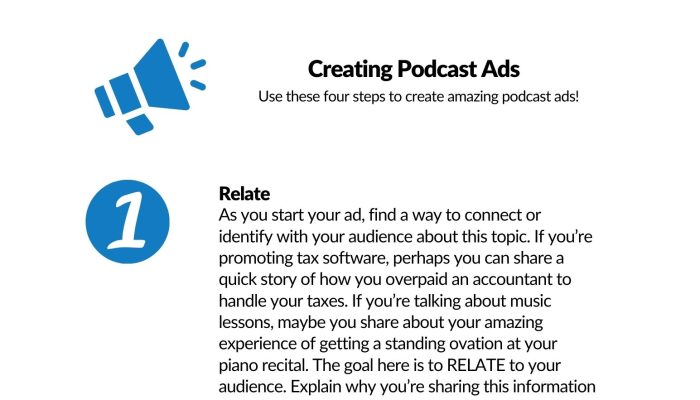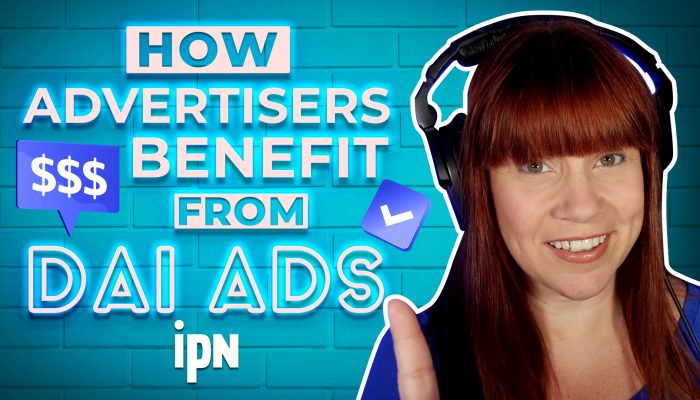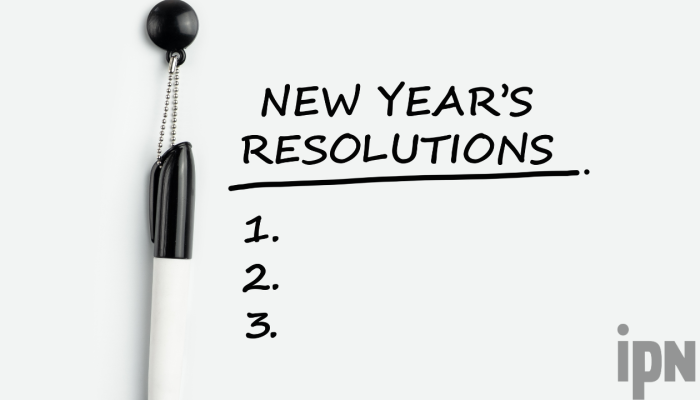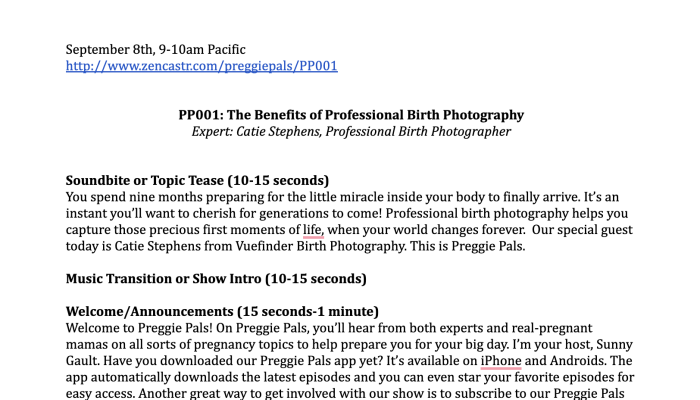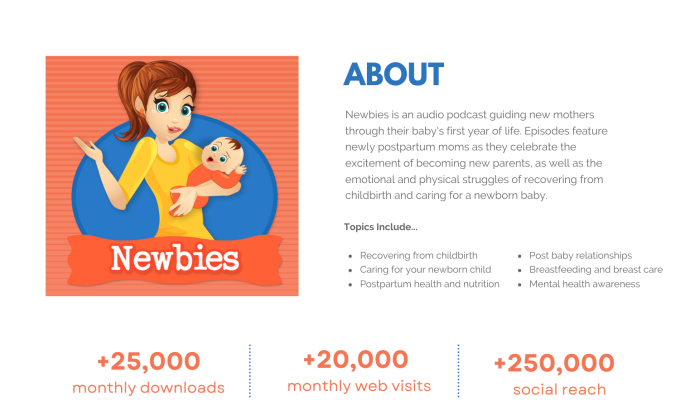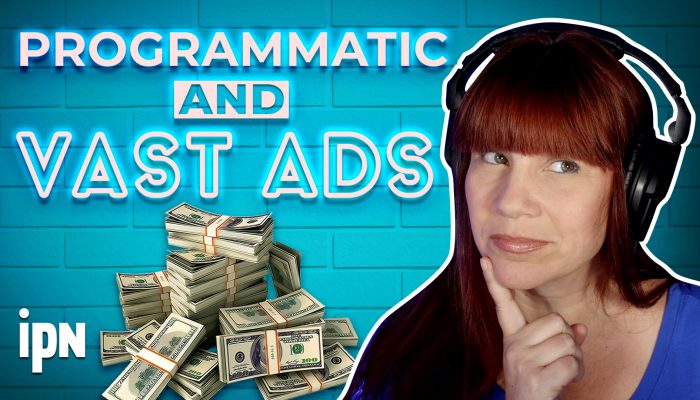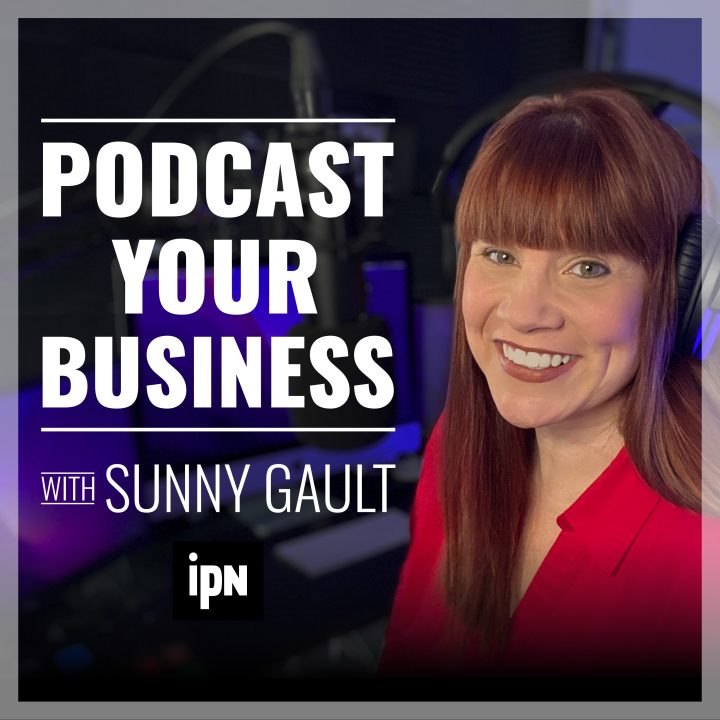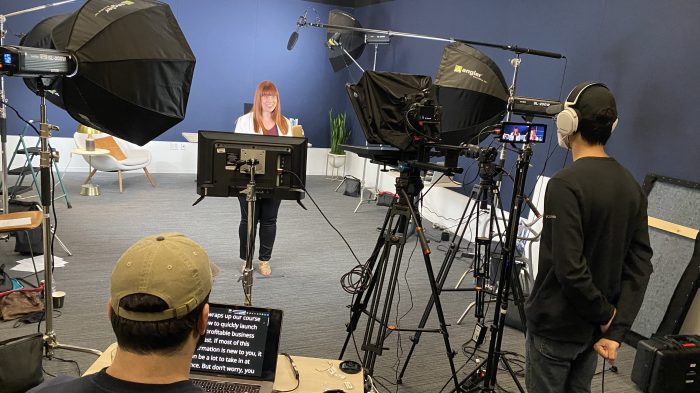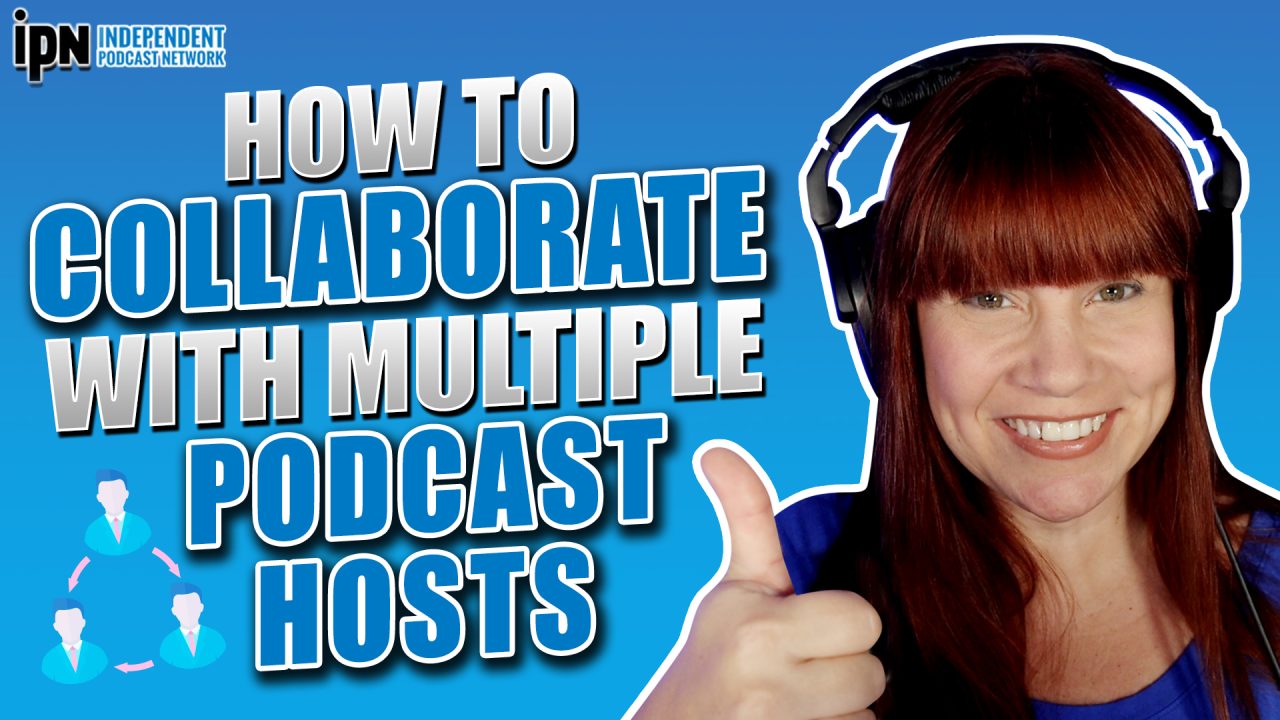
there’s safety in numbers.
Hosting your own podcast week after week can be a bit of a challenge. It can take a lot of time to write the content, schedule guests, record and publish, and promote to your audience. One way to reduce the amount of time and energy you spend on your podcast is by having multiple podcast hosts. I recently did this with a new podcast launched earlier this year. And today, I’m sharing my tips and tricks on how you can make this work for your podcast.
Here’s what we’re talking about today…
- How do you know if you need a co-host or multiple hosts?
- How to find potential co-hosts?
- Things to consider BEFORE you start recording with multiple hosts?
- How to avoid uncomfortable situations with your co-hosts.
Check out my new video podcast, UnderWired, I host with multiple co-hosts!
got everything you need for your podcast?
This podcast plan will help you keep track of everything you need to launch your podcast.

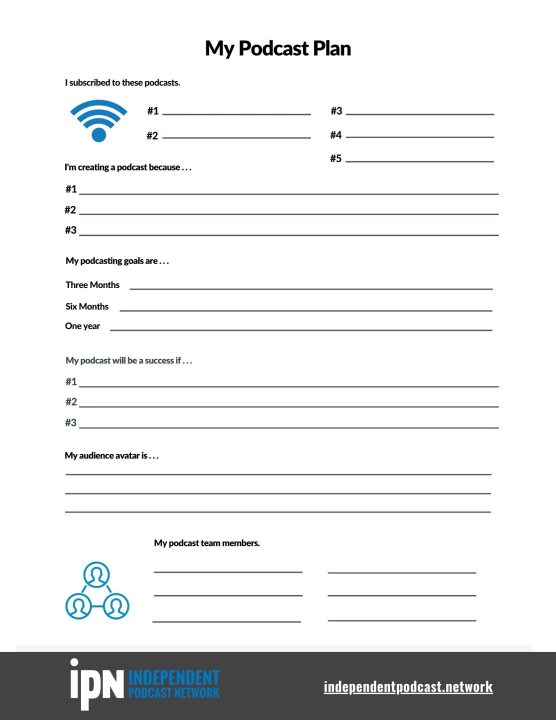
Episode Transcript
0:01
Hosting your own podcast week after week can be a bit of a challenge. It can take a lot of time to write the content, scheduled guests record and publish and promote to your audience. One way to reduce the amount of time and energy you spend on your podcast is by having multiple podcast hosts. I did this recently with a new podcast I just launched earlier this year. And today, I’m sharing my tips and tricks on how you can make this work for your podcast. Take it away, Mister radio man. Podcast Your Business.
0:36
Hey, everybody, welcome to Podcast Your Business. I’m Sunny Gault, and I am a podcast coach and mentor and I’ve been podcasting for 17 years now. I’m the founder and CEO of Independent Podcast Network, you can check us out at https://independentpodcast.network, we’ve got a ton of free content on our site. And if you’re ready to monetize, we would love to help you and connect you with advertisers as well. But today, I am here to help you create amazing podcasts. And we try to focus this as much as possible on people that are creating podcasts for your business. So we do this by mastering the five P’s of podcasting. Yes, so the five P’s are something I introduced in my first podcast course that I launched, and it was all about how do you have a successful podcast, and I broke it down into what I call the five P’s of podcasting. We have prep, plan, produce, promote, and profit. When we talk about Prep, it’s all about should you even start a podcast? And what are some of the questions you should be asking yourself plan has to do with the look and feel for your show and the overall format. Produce is creating the content, whether you have an audio or video podcast, promote is telling everybody about it. Because you can have the most amazing podcasts in the world. But if no one knows about it, I’m not sure you’re going to achieve your goals. And then the fifth P is profit, meaning how do you make money with this? And also for those of you who are doing this for your business? How do you tie your podcast into your business and help your business grow? So in each episode, we focus on a different theme, Mr. radio man, what are we talking about today? Plan.
2:06
So we’re talking about planning for your podcast, you’ve already figured out you’re going to do a podcast now you have to start thinking about the overall format for your show. And that’s where figuring out who the podcast host is going to be. Maybe that’s you, but hey, maybe you don’t really feel comfortable with it. Maybe you want someone else to be the voice of this to better represent your business, or whatever it is that you’re trying to promote. And you need to ask yourself the question, do you need more than one host to do this? So that’s what we’re going to dive into today. And here are some of the main topics we’re going to talk about. How do you know if you need a co host or multiple hosts for your show? There’s some criteria that we can kind of look at and figure out if that’s a good option for you. How are you going to find potential co hosts? So you decide, yeah, I think I may need a co host or maybe even multiple hosts? How do I find those people, we’re also going to talk about things to consider before you start recording with multiple hosts, there are some precautions that you need to take. I speak from experience on this. And then finally, how to avoid any uncomfortable situations with your co hosts. Because it’s nice to have that additional support. But you’ve heard the phrase too many cooks in the kitchen, that could definitely apply. So you kind of got to look at this. And there’s some things you can do in advance to make sure everybody is on the same page. And we’re gonna get started with that right after this quick break.
3:49
Should you have multiple hosts for your podcast? You may have never even thought about this, right? Maybe never asked yourself this question before, but I want you to think about it carefully. Even for those of you who have already launched your show, you can still make modifications to your podcast because you want it to be the best it can possibly be. And I believe the key to podcasting is being consistent, releasing episodes on a consistent basis. Sometimes it’s tough to do that, because let’s face it, life just gets in the way. And for those of you that run your own business, things pop up, right, you were scheduled to record a podcast episode but something more important, you know what’s going on in your business and you need to take care of that first. So having one or more podcast hosts can really help you when times get tough. So let’s dive into this. And let’s figure this out. The first question is how do you know if you need a co host or multiple hosts? What I would advise you have is think about your resources that you have. And as you think about your resources, you need to be 100% honest with yourself about what you have the time and energy to do. Well, what can’t you do? What can you do? What can’t you do? And I don’t mean physically, I because I know as business owners, we all push ourselves to the limits, I get that. But be realistic with your time and energy. How much time can you devote to your podcast, I always encourage people if you can to do a weekly show, I believe studies have shown and you know, overall download and pression numbers have shown that people get into a weekly habit. And so weekly shows seem to have the best return on investment for both the podcaster who’s pouring his or her blood, sweat and tears into the show, as well as the listener. So try to do a weekly show. I’ve also tried to do daily shows, I’ve also tried to do seasonal shows, and I’m telling you, the weekly spot is the best. So if you can, I recommend doing a weekly over, you know, something that’s every two weeks or a monthly show, because that’s just our routine as humans, you also need to think about the money that’s going to go into this right, you might be able to budget some money and make it part of your marketing budget for your business. But realistically, are you going to need to split the costs would that help you. And that may be split the cost for equipment that may be splitting costs for recording, for promoting for having someone edit your show. So come up with some of the costs that you think you’re going to have, and figure out if you’re okay with that. And if you’re not maybe having someone else help you with your show is a good idea. Also, think about your comfort level. I know I mentioned this briefly in the intro, but not everyone is meant to be a podcast host. And that’s okay. That doesn’t mean your business shouldn’t have a podcast, maybe it’s not you being the host, or maybe you’re more of a moderator, but you bring on other people like there’s a lot of different things that you can do to take some of the pressure off. But I will tell you firsthand, that doing a show completely on your own is a lot more difficult than doing it with co-hosts and producers and other people that help you write. So for Podcast Your Business, I do it completely on my own, not a single person helps me with this show. And I’ve been doing this a long time. So it’s easier for me to do. But I will tell you that. I mean, there are pros and cons, you know, I can record this episode pretty much whenever I want, I don’t have to work around anybody else’s schedule, I feel completely comfortable in front of a microphone, but that might not be you. So don’t torture yourself. Like I’m all for people growing and learning. So if that’s a goal of yours that you want to get better that you want to be, maybe you want to go on other podcasts. So this is a great way for you to practice and stuff, that’s fine. But if you are just scared to death of doing this on your own, but someone told you you needed to start a podcast, you know, maybe bringing on a co host or multiple hosts and having more of a roundtable format. Maybe that’s the best way to go. Because we all love to chat, right? We’re all social creatures. So consider that as well.
8:03
I also want you to think about the format for your show, do you need more than one host to appeal to your audience. Now, this is where I’m going to bring in a show that I’ve been working on now for over six months, it took us a while to kind of get the show up and off the ground. But what I loved about it is that happened very organically. So the show is called under wired, I will include a link to the show to our website in the description if you guys want to check it out. But I just want to tell you a quick story of how this came to be because the format for this show, we had to have multiple people be co hosts for the show. So quick story. I was just talking with a friend of mine. And we were talking about how we can empower women in particular, but people everywhere because I felt like you know, after the pandemic and stuff like people were kind of just down in the dumps. They were you know, small businesses and stuff were discouraged. And we just wanted to kind of raise up the, you know, the vibration, we wanted to just encourage people and uplift people as much as possible. And I was talking to a friend of mine. And we said, well, you know, maybe we can, maybe we were actually thinking about making a business out of it initially. And we, you know, actually it was my friend, she came across a couple other women through some conferences and some events that she was doing. And she’s like, you have to meet these other women, they want to do the exact same thing that we’re doing or we want to do, and the whole thing just came about. So naturally, which is I think the way it’s really supposed to happen if you really are supposed to do something. And so we all got together on a zoom call and we all started chatting and it was like a show you guys. We were like laughing our butts off. And at the end. You know, I think we had maybe a couple calls together but it was primarily about starting a business really. And at the end I was like I think this is a show and And they did too. And then we started to have more planning meetings. And, you know, we did a bunch of test recordings and just kind of played around with the format anyways, we knew because we were trying to inspire people out there that we needed people from different perspectives, it was not going to work with just my perspective. And it wasn’t going to work with just my friends perspective, we needed all for it ended up being for women that now host the show or co host the show together. And it’s so much fine. But it just came about just so naturally, right? So that’s an example of, you know, looking at the format of your show and going, what are we really trying to do here? And how are we trying to help our audience? And is it going to be more beneficial for our audience to have different perspectives?
9:26
Okay, so how do you find potential co hosts? So I just told you the story of how my thing just happened very, very naturally. But it started with someone I already knew. And like I said, it started out for a completely different purpose, we were thinking about doing a business together, not a show, but we just kind of rolled with it. So I do recommend that first, you think about the people that are already in your life, those could be business colleagues, right? Maybe they’re their associates, someone that you met at a conference once considered those people first, for my parenting shows that I’ve told you guys about in the past, I don’t host those shows anymore. I did when that was kind of my stage of life. But I’m a little bit past pregnancy. My kids are a little bit older. So I have other hosts, host those shows now and to find hosts for the show. Usually, the person has already been a guest on that podcast, because we invite parents to be on the show. And what’s nice about that, as I can see their demeanor, I can see you know, do they naturally ask questions, do they naturally just hop into the conversation? Are they asking follow up questions and things like that. So it’s almost like a trial. And that’s how I typically find hosts for that show, there have been a couple of people that have joined recently as hosts that have a little bit of hosting experience and just happen to find our posts online. Because we do on our website, also have a Jobs page, I do recommend that you do that it’s actually really funny, because I don’t know how people are finding this Jobs page, because I’m gonna get decent traffic to the site. But it’s not crazy traffic. So someone else must have posted this somewhere else. But I have found really good people through this Jobs page. And you don’t need any extra money to put up an additional page on your website, right. So if you don’t already have people in mind, and if people aren’t naturally just reaching out to you, my next recommendation is to find groups that are related to your podcast topic. Let me give you an example. So I have a podcast that’s focused on the parents of twins and multiples. And finding a host for that show. Well, I actually found her a couple of different ways, she happened to be a guest on our pregnancy show. So I kind of already knew her. But she was also the leader of her local twins and multiples group. So she had been on a couple of our pregnancy podcast talking about being pregnant with twins. So I got to kind of see, you know, how she, you know, discuss things, you know, how she interacted with other people. But then I also knew that she was ahead of this group. Now, if I were to ever, you know, need another host for that show, the first thing I would probably do is to find local groups or other groups, I guess it doesn’t have to be local, if you’re able to record remotely, that do the same thing. So I would look for twins and multiple groups probably anywhere in the country, and see who might be a good fit. So that’s just one example. Look for other groups like that. Because this is what I found, if you find people that are passionate about the topic, and they’re just fun, interesting people, they will probably make for good podcast hosts, you don’t need someone that’s trained in hosting, in fact, of any medium. Podcasting is one of those tools, and resources where it is more refreshing if people are just themselves. And sometimes if you find someone that is trained too much, it’s really difficult to break them out of that mold. So don’t feel like you have to get some professional voice over person or whatever. I think the person just needs to have a passion for whatever it is that you’re talking about. You can also find these people in different online groups. So if you’re on Facebook or Instagram, maybe you’re part of some of these groups. I know LinkedIn has some groups. So I would recommend checking out those resources as well.
14:43
Let’s talk about things to consider before you start recording. So you found your co host, or maybe you’re having multiple hosts. You all need to be on the same page. And I do find the best way to do that is to have some sort of an agreement between everyone that’s involved. when I have new hosts come on board for our parenting shows, we always have an agreement, you can call it a contract. I try not to have a lot of legalese and stuff like that in there, it’s more of an outline of expectations. And I also need to make sure that we own the rights to all of the content. And you’d want to do the same thing, if this is for your business, because this is now a marketing tool for your business, you don’t want an external host to be able to walk away with the product. Now, if you’re bringing a co host on board, that is also a professional in your space, maybe you can come up with some sort of agreement. So maybe not everything, maybe you split things 5050, because you’re both going to be putting work into this. So you need to come up with something that makes sense for your situation. But the bottom line is, you need to have something in place so that everyone’s on the same page, it also should outline who is going to do what, because if you’re bringing someone on board, part of the reason you’re doing that probably is to take some of the weight off your shoulders. So whatever that is, so I’m going to do the research. And then this person is going to do this, like outline that in whatever agreement that you have. You also need to talk about timelines. And what I mean by that is, how many episodes are you going to do. And I don’t recommend that you do this, like for infinity, like no have some sort of timeline or, you know, dates for when you’re going to release these episodes. And when you’re going to record these episodes. Podcast seasons can be a really good way to organize this. Okay, so you come together and you say, we’re just going to try this out for the first season and see what happens a season you can make it up because it doesn’t have to be a certain amount of episodes, our first season is going to be 10 episodes, that’s what I typically do 10 episodes. And then after that, we’re going to evaluate and see how it works, I do the exact same thing. When I’m bringing on a single host for one of my parenting shows. I say, Okay, you seem like a great fit. Let’s just try this out and see if it’s a good fit for us and see if you like it as well, because I don’t want to keep someone doing something that they don’t want to do. So let’s just test this out. And it all comes back to having dates or timelines. And I also recommend outlining the schedule or the recordings in advance. So back to the show UnderWired that I’m doing with now some friends of mine, it used to be one friend. Now I’ve got three more friends. So it’s all good. So with that show, we plan out our recordings way in advance, because we’re all super busy people. And then we stick to that. I mean, the other day, we had to record and one of the ladies was she was traveling and her green screen was supposed to be there on time. It wasn’t there on time. And we’re like, oh, no, we still have to record and we still made it work. So we stick to those times no matter what. And I do recommend in some sort of agreement that you outline what that’s going to be because you need to manage expectations. You also need to discuss what happens when the show makes money. Or if the show makes money. You may not even be planning for the show to make money. But what if it’s successful, and you haven’t had these kinds of discussions yet, you need to talk about how much each person is getting paid, how much money is going to go back into the show, because I recommend you do that to make it easier on you guys. So if you’re doing the editing now budget some money so that you don’t have to edit into the future, if your shows making money. Does everybody have equal say? And everything that’s being determined? Or does someone have a little bit more percentage of the podcast and can make a final decision? Because in our case, we have four co hosts. So if we divided everything up evenly, what do we do if two people want one thing, and two people want another?
17:59
With our show UnderWired we actually have done a really good job of avoiding uncomfortable situations with each other. And I think this boils down to communication. And this should come as no surprise, right? Because it doesn’t matter if you are married to somebody, if you’re just friends with someone or if you’re co hosting a podcast with somebody. Communication is so important. And I was thinking about how do we do this? So well? What are some of the decisions that we’ve made that really help us have better communication? Here’s my recommendations have a main way to communicate with your group. It can get very confusing if you’re using email, you’re using social media, your texting, you know, there’s a bunch of different ways you can communicate with cohost because you got to stay in communication with them. So everybody’s on the same page. So find a primary way to do that and keep doing it that way. And when you communicate unless it’s something that really just needs to be said to one person, for the most part, say to the whole group. You know if it’s something about the show and coming up and what you’re working on, say it to the whole group because you don’t want people to feel left out. So if you have some sort of social channel that you’re using, or if it’s a group text, send it to the whole group, let everyone know what’s going on. If a problem happens, this would be a time that it’s important to go to the person where the problem happened, I feel like I’m talking to my kids now. Don’t just be mad at each other, go and talk to the person. But that’s going to be more and more important than more people that you have co hosting or you know, part of your podcast. So go to the person talk to the person directly, I always assume positive intent. So that means don’t assume that someone was trying to be vindictive or nasty towards you have a policy with all of your co-hosts to assume positive intent. So if a mistake is made, or someone forgets to do something, you know, don’t get nasty with them, don’t get mean with them assume that it was just an accident. Because we all forgot, I’ve got mommy brain, I’ve got four kids that I’m taking care of, in addition to everything that I do with my business, so I forget stuff. And it’s not because I’m trying to be mean to someone, it just happens, assume positive intent. I think it’s also important to celebrate your wins. Because I know you’re focused on growing and, you know, connecting with your audience and doing all these different things, even if they’re small wins come together, somehow, if you’re not in the same city, get on Zoom or something like that, have a glass of wine together, do something fun, and celebrate your wins. I also think it’s important to find ways to show your co host that you appreciate them unprovoked not because they just did something amazing. That’s a time when you really should acknowledge them for sure. But even the small things, oh, I’m really glad you wrote that description for me, because I didn’t have time to do it this weekend. Boy, that just really helped me out. Or, you know, it was really great. That transition you just made like, that’s fantastic. We, you know, we rolled into the next segment, you were really on it today. Thank you, those little wins, those little moments of gratitude will really go a long way. Those are my tips and tricks for finding co hosts and working with co-hosts. As I said, I speak from experience. It can be amazing doing your own show. I love doing Podcast Your Business alone. But it’s a lot of work. When I get together with my friends and I do underwired it’s a lot of fun. It’s just fun. And sometimes you need a little bit of both. Find what works for you. We’ll be right back after this quick break.
22:37
Today, we’ve been talking about planning for your podcast, and I have a great FREE handout for you guys. It’s called “Creating a Plan for Your Podcast”. And it goes over some of the things that you need to consider as you are planning for your show. It’s great for people who are thinking about starting a podcast and kind of need to get into that mind frame of what’s my format going to be again, like some of the stuff we talked about today. How many hosts am I going to have for my show. So I encourage you guys to check that out. It is listed on our website, but I’m also going to drop a direct link in the description below. Please check out https://independentpodcast.network. So that’s our website. We’ve got a ton of free resources including more blog posts. In fact, we have a new weekly post that comes out and more podcast episodes, videos, handouts, just like the one I just told you about. And courses whole courses for free. There’s no reason that you shouldn’t have to pay for a podcasting course. Go to our website and everything you need to know the five Ps that I talked about earlier. And coming up next week. I have a brand new course that’s being launched, but I’m gonna leave you hanging on that one because it’s not available yet. Until next week. Remember, guests are awesome!
